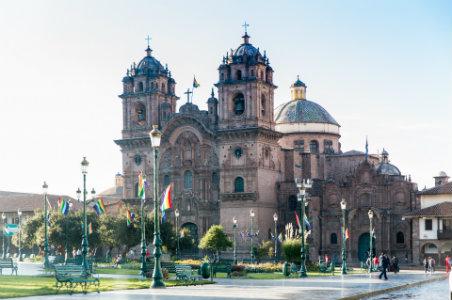
Perched at a catch-your-breath elevation of 11,200 feet, Cusco is often seen as the gateway to the 15th-century Incan site of Machu Picchu, not to mention a convenient base with an airport and comfortable hotels. Yet the city is a flourishing destination in itself: the historical capital of the Inca Empire, home to countless layers of history, and a fascinating cultural melting pot. If you've traveled great distances deep into the Andes Mountains, and arrived in the former home of Incan leaders, wouldn't it be a shame not to stop and look around?
Cusco is full of cosmopolitan pleasures, from cooking classes to vibrant markets, squares with street musicians to neighborhoods full of local artisans. Here are seven reasons to get to know Cusco beyond the bus station that leads to Machu Picchu.
Local Cooking Classes
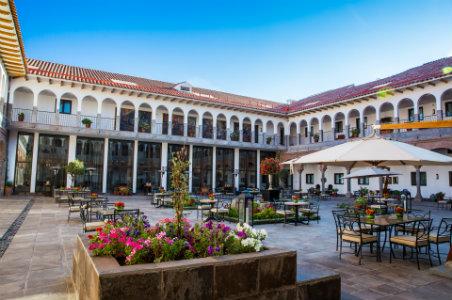
The best cooking classes are intimate in size, led by an expert, and allow you to eat as you go. Look no further than the chef's table at the JW Marriott Cusco for this type of interactive experience. Before you sit at an elegantly set table in the professional kitchen and indulge, there's work to be done. Classes (from $70/person, best for groups of 6 or less) cover dishes that represent the cuisine of the region; bring your appetite, as you'll be preparing two appetizers, two entrees, and two desserts, including local favorites such as ceviche, causa rellena (a local dish made with yellow potatoes), and lomo saltado (a local favorite of stir fried beef, onions, and tomatoes).
Recommended Fodor’s Video
San Pedro Market
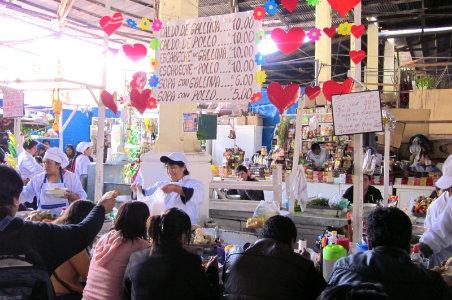
Cusco's central market is a delightfully chaotic space that remains at the heart of local ritual. At the center of San Pedro Market, the aroma of chicken soup is overpowering—the stock has been simmering for hours and locals slurp it up for breakfast. There are tables piled high with warm breads and biscuits, and ladies playfully calling you to their juice stands, full of vibrant colored fruits, vegetables, and herbs (order yours without water). The best way to tackle the market is with a guide, who can help with language and prices, and lead you to the best bites within.
San Blas
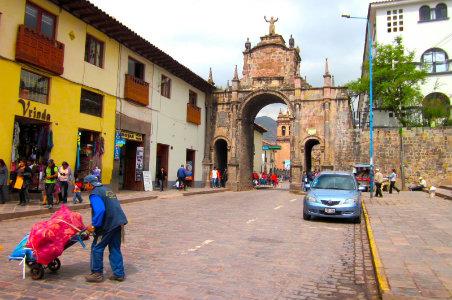
Beyond the picturesque central square of Cusco is the San Blas neighborhood, a maze of winding streets and squares with an artisan reputation. Take an afternoon to wander through narrow streets where prestigious shops with locally made goods are displayed. This part of the city is known for its personality, from the street vendors selling hand-woven alpaca goods to the shops with stocked shelves for every taste; the stores surrounding the neighborhood's church are particularly special. There are also typically alpacas being led through the quiet streets—in exchange for a tip, you can snap a photo with one.
Chocolate
Cusco is home to its very own Choco Museo, or chocolate museum, with interactive exhibits that explore all things chocolate: where the cacao bean comes from, how it's grown in Peru and beyond, and how chocolate is made. Chocolate fiends can take this learning experience one step further with a two-hour workshop that starts with the cacao bean, teaches participants how to make chocolate, and finishes with a tasting session. There is also an on-site café for sampling items like chocolate tea, a decaffeinated tea made from the shells of the cacao bean that has all the chocolate taste and aroma but none of the caffeine.
Archaeological Ruins
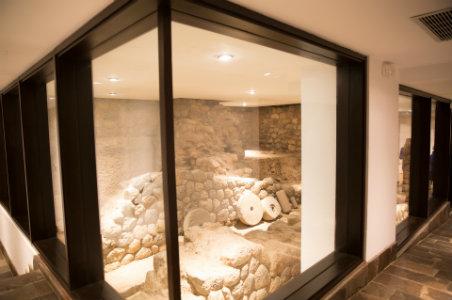
Plenty of history can be seen on the streets of Cusco, but lots more is buried underground. Join a tour of the archaeological ruins preserved beneath the JW Marriott Cusco (free tours offered daily at 6 p.m., open to the public). These ruins were uncovered during excavation works when the structure was transformed from a 16th-century convent into a hotel. Pre-Incan, Incan, and Colonial ruins can be seen during this tour beneath the old colonial convent of San Agustín.
“Señora de los Tamales”
After strolling around the main square and the side streets, a snack might be in order. Señora de los Tamales, or Tamales Lady, sets up shop every day on the southeast corner of the central plaza, under Papacho's restaurant. Her tamales—both sweet and savory—continue to steam beneath a towel until you place an order. Peal back the exterior leaf and dig in with the rest of the locals, who grab a seat in the plaza nearby.
Llamas and Alpacas
In Cusco, visitors are bound to see alpacas being led through the streets. Animal lovers can get to know these creatures up close at Awana Kancha, located a short drive from the city. This cultural retreat offers the opportunity to feed llamas and alpacas (they can't resist a handful of fresh herbs) while learning about traditional textile-dyeing-and-weaving techniques. It's also a great excuse for a short trip outside the city into the surrounding lush mountains and countryside.



